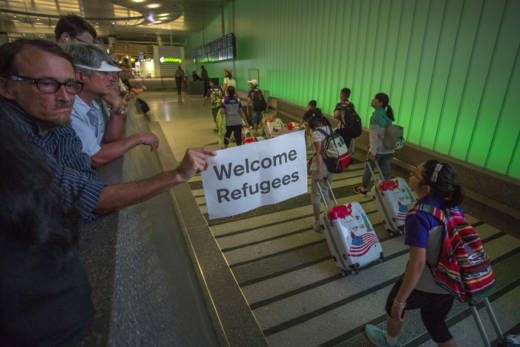A federal appeals court on Thursday rejected the Trump administration's limited view of who is allowed into the United States under the president's travel ban, saying grandparents, cousins and similarly close relations of people in the U.S. should not be prevented from coming to the country.
The unanimous ruling from three judges on the 9th U.S. Circuit Court of Appeals also said refugees accepted by a resettlement agency should not be banned. The decision upheld a ruling by a federal judge in Hawaii who found the administration's view too strict.
"Stated simply, the government does not offer a persuasive explanation for why a mother-in-law is clearly a bona fide relationship, in the Supreme Court's prior reasoning, but a grandparent, grandchild, aunt, uncle, niece, nephew, or cousin is not," the ruling said.
The U.S. Supreme Court said in June that President Trump's 90-day ban on visitors from Iran, Libya, Somalia, Sudan, Syria and Yemen can be enforced pending arguments scheduled for October. But the justices said it should not apply to visitors who have a "bona fide relationship" with people or organizations in the U.S., such as close family ties or a job offer.
The government interpreted such family relations to include immediate family members and in-laws, but not grandparents, cousins, aunts and uncles. The judge in Hawaii overruled that interpretation, expanding the definition of who can enter the country to the other categories of relatives.
